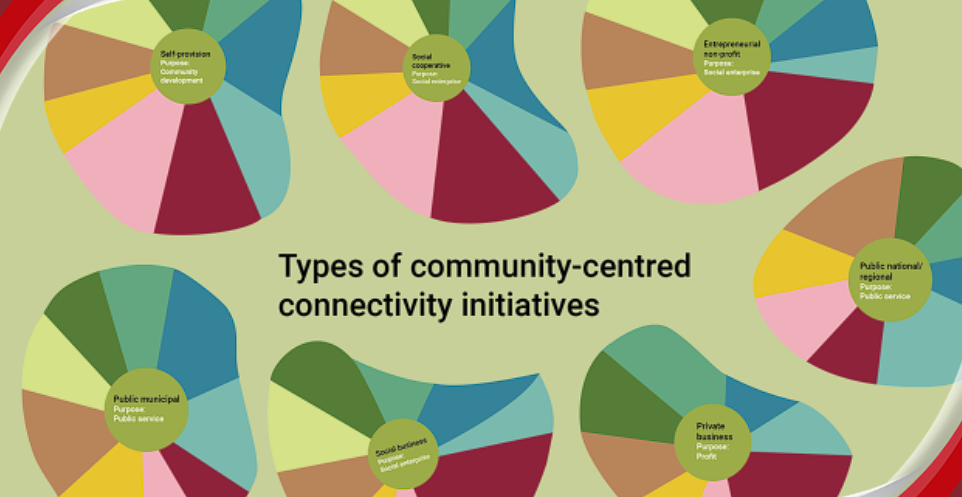Articles
Expect “supercharged Internet experience” from wireless ISPs thanks to new Wi-Fi spectrum
-
1 year ago
The Independent Communication Authority of South Africa’s (Icasa) opening of the lower 6 GHz spectrum band for Wi-Fi services will mean Internet users with Wi-Fi 6E equipment will enjoy a “supercharged Internet experience”.
This is according to Wireless Access Provider’s Association (WAPA) executive committee member Paul Colmer, who said the opening of the lower 6 GHz band for indoor allows wireless Internet service providers (WISPs) to maximise the potential of their services.
“While the current regulations only permit the use of lower-band 6E spectrum for indoor use, that’s still going to open up a massive window of opportunity for Wireless Internet Service Providers (WISPs) to maximise the potential of their broadband internet services,” said Colmer.
“Using any number of already-certified 6E devices, like routers, handsets and even home entertainment appliances like TVs and other smart devices, users will enjoy a supercharged internet experience, with much higher throughput and speeds, and much lower interference.”
“Until now, you’d need to be on a wired Cat6 cable network to get 1-gigabit-plus internet and LAN speeds in your home or business, but with 6E devices, these speeds will soon be available wirelessly,” he added.
Colmer noted that, since very few currently use the 6 GHz band, there’s very little interference, unlike the already-congested 2.4 Ghz and 5.8 Ghz bands.
He added that the next potential benefit for WISPs would come when the lower 6 GHz opens for outdoor use, which will let them increase the speed and bandwidth of their services.
“Enabling 6E outdoors will require the creation of Automatic Frequency Coordination (AFC) databases, which are used to automatically prevent interference between long-range broadcast equipment for new and existing users, which in the 6e band are primarily satellite services at this time,” said Colmer.
“To date the US, Canada and Brazil have started commercial AFC trials in the 6E band. Hopefully now that South Africa has caught up with the rest of the world in opening up lower-band 6E spectrum, we can also move rapidly to allow for outdoor 6E use and, beyond that, look at opening up upper-band 6E spectrum as well.”
On Tuesday, 23 May 2023, industry regulator Icasa announced that it had effectively opened the lower 6 GHz spectrum band for Wi-Fi services.
It explained that the lower 6 GHz frequency band refers to the radio frequency range of 5925–6425 MHz, per the National Radio Frequency Plan.
“This additional spectrum can support more simultaneous connections, offers reduced latency, delivers faster data speeds, and results in less interference, especially in potential congested high-density areas and campus environments,” the regulator stated.
Icasa has said the lower 6 GHz frequency band is rapidly emerging worldwide as a key component in broadband rollout and uptake.
It provides an essential local loop component to support fibre, fixed-wireless access, TV-Whitespace, and satellite backhaul.
However, Icasa specified that while the use of this spectrum doesn’t require a licence, other regulations still apply, such as devices requiring type approval.
“The Authority will work closely with industry stakeholders to ensure compliance with these regulations and to protect the interests of business and consumers,” it stated.
Related Articles Posts
Categories
Popular Post
-
 SA’s IT spend to outpace GDP growth 1 year ago
SA’s IT spend to outpace GDP growth 1 year ago -
 Vodacom, Netstar launch free in-taxi Wi-... 1 year ago
Vodacom, Netstar launch free in-taxi Wi-... 1 year ago -
 South Africa under pressure to fill cybe... 1 year ago
South Africa under pressure to fill cybe... 1 year ago -
 Organisations with a strong employee val... 1 year ago
Organisations with a strong employee val... 1 year ago -
 Joint policy-in-action event highlights... 1 year ago
Joint policy-in-action event highlights... 1 year ago -
 Boost your digital transformation journe... 1 year ago
Boost your digital transformation journe... 1 year ago








